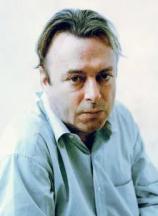Hitch-22: A Memoir
Review
Hitch-22: A Memoir
If you find yourself in the midst of Christopher Hitchens’s memoir and he hasn’t said something to anger, inspire, or at least annoy you, wait a few pages. More the account of an intellectual and political odyssey than a conventional autobiography, HITCH-22 chronicles the critic-journalist-activist’s often storm-tossed journey across the ideological spectrum. What makes it a most rewarding trip is that he’s a traveling companion with a vigorous mind and a gift for sparkling prose.
Hitchens opens with an uncharacteristically (at least when balanced against the rest of the memoir) intimate pair of chapters that focus on his middle-class background and feature sympathetic portraits of his parents: Yvonne (who met an untimely end in the company of her lover in an Athens hotel room) and “The Commander,” a World War II veteran of the Royal Navy. Sent to boarding school at age eight, he was a mostly indifferent student through his days at Oxford, and he’s quick to focus the narrative on his political activism (including fervent opposition to the Vietnam War) among the Trotskyite International Socialists. There are some less than gripping tales of trips from Portugal to Poland to Argentina to meet with like-minded types, the unifying thread their opposition to any form of totalitarianism.
Despite his concession that “the moral attitudes that one strikes are often devoid of any significance,” Hitchens is never less than passionate in promoting his beliefs. Writing of his support for his friend Salman Rushdie in the face of the fatwa engendered by his novel, THE SATANIC VERSES, he offers this elegant summary of his political philosophy: “It was…a matter of everything I hated versus everything I loved. In the hate column: dictatorship, religion, stupidity, demagogy, censorship, bullying and intimidation. In the love column: literature, irony, humor, the individual and the defense of free expression.”
Citing in his support John Maynard Keynes’s question, “When the facts change then my opinion changes: and you sir?” the most substantial (and likely most controversial) chapter of Hitchens’s memoir is a spirited, if not entirely convincing, defense of his decade-long shift (capped by the events of 9/11) from an opponent of the first Gulf War to an ardent advocate for eradicating Saddam Hussein’s regime. His opposition grounded in the unspeakable brutality of the dictator’s rule (information few right-thinking people disputed without necessarily supporting American intervention), Hitchens passionately wrote and spoke for a policy of regime change. But he’s mostly silent on the manufactured rationale for the war, although quick to cite evidence of clandestine meetings in Niger that seem to lend support to the fatuous WMD argument. At least he has the intellectual integrity to blast the “impeachable incompetence of the Bush administration” in its handling of the occupation.
Although Hitchens can’t entirely resist the occasional jab at organized religion, readers who want a larger dose of his views on that subject will have to refer back to GOD IS NOT GREAT, one of the foundation texts of the “New Atheism” movement. When it comes to religion, what’s most startling is Hitchens’s account of his discovery, on the verge of his 40th birthday, of the fact that his mother was Jewish. Unfortunately, that fact does nothing to temper his harsh criticisms of Israel’s policies toward the Palestinians or his belief that the Zionist dream is a hollow, even at times pernicious, dream.
There are examples of great passion and sensitivity here. Hitchens writes movingly of the night he spent reading the United States Constitution before taking his citizenship examination in 2006. His account of the death of Mark Daily, a young man inspired to enlist in the military by Hitchens’s writing, is similarly heartfelt. In contrast, the intermittent glimpses of friends and literary contemporaries like Martin Amis, Ian McEwan and Salman Rushdie, including stories of some long and very liquid lunches that featured arcane word games, are pleasurable, but even Hitchens concedes there’s a certain “you had to be there” quality to them.
Hitchens’s withering dismissals of political adversaries are delights in themselves. There’s Alexander Haig, “Reagan’s vain, preposterous secretary of state…in his usual engorged condition of being crazy for anything that was militaristic, sadistic and butch in a uniform,” or the Great Communicator himself and his “appallingly facile manner as a liar.” And then there’s his lacerating characterization of Jerry Falwell and Pat Robertson, those “tethered gas-balloons of greed and cynicism.” Lest anyone think his barbs are directed only at conservative Republicans, he’s equally acerbic in describing the effort to get Bill Clinton “to take some kind of intelligibly vertebrate position” on the request for a meeting with Salman Rushdie in the midst of the fatwa. Hitchens is even quick to hint at the possibility that Clinton informed the CIA about the activities of anti-war students when both were at Oxford in the late 1960s.
In a recent interview, Hitchens said, “It isn’t what gets me out of bed --- how many people can I win over today? No, it isn’t. It’s the enjoyment of the combat --- in part for its own sake, sure --- but also to give a good representation, I hope, to the people whose principles are in common with mine.” As a former president liked to boast, we may not always like what Christopher Hitchens has to say, but we know where he stands.
Reviewed by Harvey Freedenberg (mwn52@aol.com) on January 22, 2011
Hitch-22: A Memoir
- Publication Date: June 3, 2011
- Genres: Nonfiction
- Paperback: 448 pages
- Publisher: Twelve
- ISBN-10: 044654034X
- ISBN-13: 9780446540346




